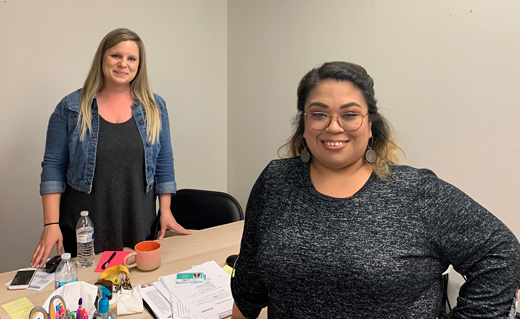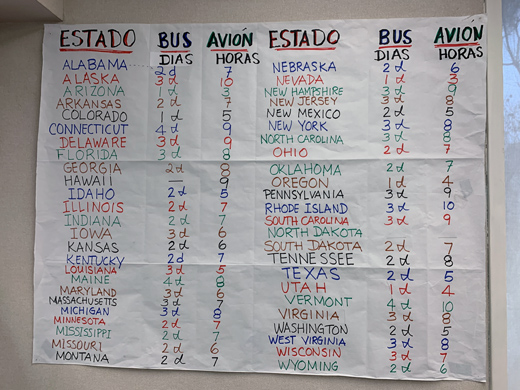
By Donald H. Harrison

SAN DIEGO – I have had the privilege over the years of interviewing many Survivors about their experiences during the Holocaust. After doing a number of these interviews, I noticed a pattern. When they were recounting for me all the horrible things that had happened to them and their families in the ghettos, in the cattle cars, and in the concentration camps, they did so with a steely determination to get through that part of the interview with as little emotion as possible. It was as if they had purposely turned off the parts of their brains that makes voices quiver, throats fill with a lump, and eyes burn with tears.
Eventually, the chronological interviews would come to a point in the Survivors’ lives when some stranger was kind to them, or treated them with the dignity that had been denied to them ever since the Nazis came into power in their country. For some Survivors, such an experience happened even while the Holocaust still was raging, and in others it came in the immediate aftermath of liberation. At whatever juncture it occurred in the Survivors’ accounts, I would perceive a shift in the manner in which the Survivors told their stories. Now, they would allow emotion, in the form of gratitude, to seep into their voices. Now, they would allow themselves to cry with the memory that, after all that they had been through, there were some strangers who were kind, decent, and good, and who treated them with dignity.
I do not mean to equate the experience of refugees and asylum seekers from Central America to those of Holocaust victims. Even though some of them experienced unconscionable brutality in their home countries, they were not subjected to anything like the Holocaust’s mechanized system of murder carried out by a maniacal government. While the circumstances most certainly differ, some of the emotions are the same – especially that welling sense of gratitude the asylees feel toward strangers who, by their kindness, signal that their ordeal is almost over; that better days are to come.
Such a transition begins the moment that U.S. immigration authorities drop asylum seekers off at the shelter that is operated by the Rapid Response Network in the greater downtown San Diego area, according to Ashley Frez, the director of shelter operations. As the tired and hungry asylum seekers file off the bus or van, not knowing where they are or what is next, they are greeted by smiling, happy volunteers, who welcome them – welcome them – as guests in San Diego. The guests are immediately provided with snacks typically consisting of a piece of fruit, a granola bar, a sandwich, and fresh water.

Sometimes, and in some political quarters, organizations that help asylum seekers are criticized by those who consider new immigrants somehow threatening to our social order. The lead sponsor of the Rapid Response Network, which operates the shelter in San Diego, is Jewish Family Service. Its chief executive officer, Michael Hopkins, responds to such allegations saying, “Our commitment to the migrant shelter is a reflection of our longstanding commitment to welcoming the stranger. It is also aligned with our value that Dr Martin Luther King Jr stated, ‘The time is always right to do the right thing.’ By addressing the health, safety, security and travel coordination of migrant families who are legally here, JFS is preventing a public health crisis and an overwhelming of our city’s already strained homeless services.”
The shelter’s guests, who in most cases are young families with children, are informed that the facility to which they have been brought is run by a non-governmental, charitable organization that was created to help them reach their ultimate destinations in the United States.
They are told that staying at the facility is voluntary; that they may leave at any time, if they so desire, to find their own way to their sponsors’ homes. However, if they remain at the shelter, many of their immediate needs will be fulfilled.
They will receive a free medical examination; they will be assisted with travel arrangements to their sponsors’ homes; they will have a safe place to shower, to sleep, and to eat while those arrangements are being made. They will be given gifts of clothing. They will be able to talk by telephone to their sponsors, and also to talk to the families whom they left back in their home countries. Additionally, they will have the opportunity to meet with immigration attorneys, who can explain to them the legal process that awaits them at their destinations. And while the adults are taking care of travel arrangements and discussing the legal process, activities such as crafts and sports are provided onsite for the children.

“We have had so many guests just break down because – I don’t want to generalize – but they are finally being treated with dignity,” commented Patricia Ramirez, a social worker who serves as director of migrant family services at the shelter. “For some, it is like, ‘Wow, I made it to the U.S.,’ and they are experiencing many feelings, many overwhelming feelings, because they still don’t know what is going to happen next.”
Listen to the words that Ramirez uses. The people who come to the Rapid Response Network’s shelter are guests. They are not cases, nor numbers, and certainly not people to be feared; they are guests. Some 50 Rapid Response Network staff members at the shelter, which operates 24 hours a day, 7 days a week, often, themselves, feel overwhelmed by the emotions of relief and appreciation that guests express to them.
“On our end we have to remind our staff and ourselves that our guests are so resilient,” Ramirez said. “They have made it this far and they’ve had to be strong, and we tell that to our guests too. We remind them that ‘You have made it this far; you got here. We are going to get you to your next point.’”
After the guests have a snack in the reception area, they are brought to the medical area for screening. In the event anyone has symptoms of a communicable disease, he or she is moved to a treatment area. In more serious cases, they will be brought to cooperating medical facilities. Medical personnel also are available for happier situations: there have been cases of babies being born at the shelter, Ramirez noted.
Following the medical screening, the next stage is to meet with the staff members who will arrange their travel. This is the point at which the guests will have the opportunity to make phone calls both to their sponsors and to their families at home. Usually the guests arrive with little money in their pockets. The sponsors will send money for their transportation. While some can afford to pay for plane tickets, the majority of sponsors are not so wealthy. So, they pay for bus tickets. There is a chart on a wall that informs guests how long the trip by airplane or bus will take to the reach the state in which their sponsors live.

Sometimes, there are problems in the paperwork. Immigration authorities may have misidentified the guests, putting the wrong names on forms. Jews used to hearing stories about names being changed during their grandparents’ and great-grandparents’ immigration to the United States can empathize. Such mistakes delay the issuance of travel tickets until the problem can be fixed, causing delays for the asylum-seekers as U.S. immigration authorities reconcile their records. Sometimes, such an unexpected delay can cause the guests to feel a great deal of frustration, Ramirez said.
Once travel is arranged, volunteers of the Rapid Response Network will take the migrants to either the airport or the bus station, and remain with them until they board transportation. The migrants are provided with enough food to last them for the duration of the trip, and also with a little spending money to buy beverages or other incidentals at transfer points. At the Greyhound Bus Station, the migrants also are met on some nights by volunteers for the independent Bus Station Project, who also distribute snacks as well as stuffed animals for the little children.
Until asylum seekers report for their judicial hearings at their destinations, they are required to wear electronic ankle braces that enable U.S. immigration officials to keep track of their whereabouts.
More information about the Rapid Response Network, including how to donate, may be found by clicking here. http://www.rapidresponsesd.org/
*
Harrison is editor of San Diego Jewish World. He may be contacted via donald.harrison@sdjewishworld.com
Thank you for this well written article, Don. Both Rapid Response and JFS do good work. Also, thanks for mentioning the Bus Station Project.